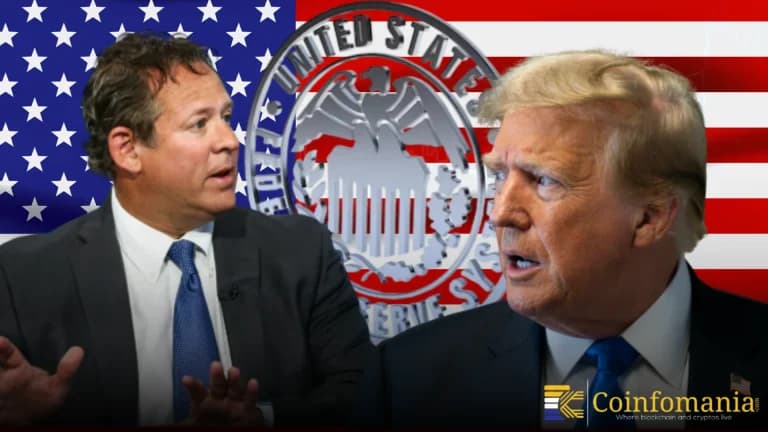Fellowship PAC Raises $100M To Push Crypto Policy Forward
Fellowship PAC raises $100M to influence crypto policy, shaping U.S. regulation, bipartisan support, global competition in digital assets.

Quick Take
Summary is AI generated, newsroom reviewed.
Fellowship PAC launches with $100 million to influence crypto policy
PAC strategy supports bipartisan candidates who align with crypto rules
GENIUS Act and pending bills push demand for regulatory clarity
Crypto spending jumped from millions to hundreds of millions rapidly
International frameworks pressure U.S. to define clear crypto policy
Fellowship PAC is trying to pull in $100 million. That kind of money can change how the crypto policy fight plays out in Washington. It puts them right next to Fairshake PAC, which already has $116 million lined up for the 2026 cycle. They’re buying real influence, trying to keep the U.S. out front on tech and markets.
Crypto policy support goes beyond partisan politics
Unlike partisan committees, Fellowship PAC is saying it will back candidates across parties as long as they align on crypto policy. Obviously, that expands their reach. Instead of betting on one political camp, they can reward whoever helps deliver market clarity. That model already worked in 2024, when crypto PACs supported dozens of winners in both parties. It helped unseat sitting committee chairs and created a Congress more open to digital assets.
New acts raise expectations for crypto policy clarity
The GENIUS Act passed earlier this year under the Trump administration gave stablecoins a national framework for the first time. Of course, that raised expectations. Investors and companies now want to see the follow-through. The Fellowship PAC looks like it will channel money toward candidates promising to extend that clarity into broader digital asset rules. The Digital Asset Market Clarity Act is still moving through Congress, and backing the right lawmakers could be decisive.
Crypto PACs spent less than $3 million in the 2020 cycle. In name of crypto policy, by the first half of 2025, lobbying spend alone hit $18.4 million. That’s before counting campaign support. Now add over $360 million sitting across Fellowship and Fairshake combined. Clearly, the industry sees regulation not as an outside threat but as something to shape. Digital assets are no longer treated as fringe finance. They are buying their seat at the table.
The European Union’s MiCA rules went live in 2024. Singapore, Hong Kong, and the UAE already run ahead with comprehensive frameworks for clear crypto policy. Obviously, if U.S. leadership wants to keep digital assets and talent at home, it needs its own stable environment. The Fellowship PAC is making that argument directly. That’s not an abstract risk. Coinbase alone put over $33 million into crypto PACs. Ripple added $23 million.
Crypto PAC money proves effective in election influence
Another layer is effectiveness. Crypto PACs backed 58 races in 2024 and won 53 of them. One result was Sherrod Brown losing his Senate seat after $40 million in crypto-backed spending boosted his opponent. That’s a blunt reminder that political money works. Of course, with Fellowship PAC now in play, those numbers could climb higher in fiscal 2026.
Donor secrecy raises questions in crypto policy funding
What still lingers is transparency in the crypto policy. The PAC claims it will be open, yet has not revealed its full list of donors. . It will bring Wall Street proximity plus links to Tether. Clearly, that’s influence within influence. The overlap with Commerce Secretary Howard Lutnick’s circle adds another layer of access. Whether that is good or concerning depends on how comfortable voters are with financial institutions shaping crypto rules.
Zooming out, the broader trend is unmistakable. Crypto gains have created a financial base strong enough to fund national politics at scale. The debate is no longer about whether digital assets belong in portfolios. We may get to see capital tax rules, loss carry treatment, and other structural issues get written into law. Obviously, those choices affect investors, companies, and even U.S. fiscal positioning.
Follow us on Google News
Get the latest crypto insights and updates.


